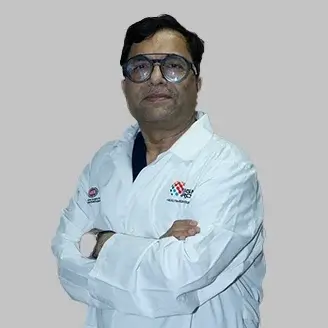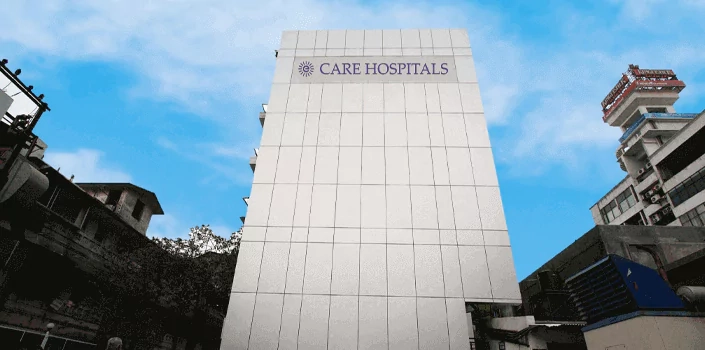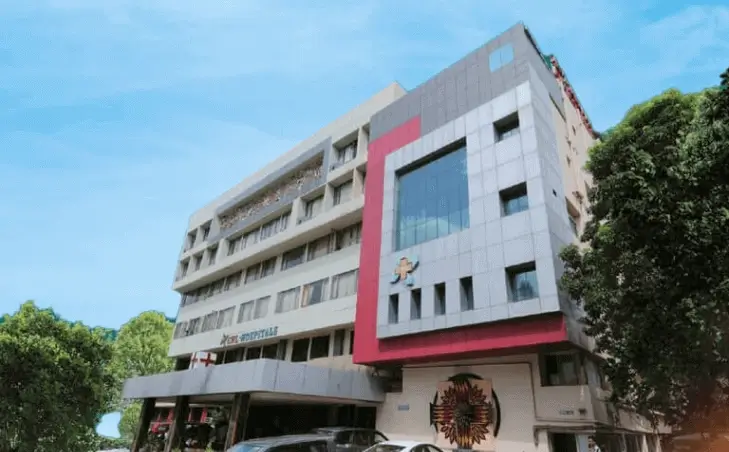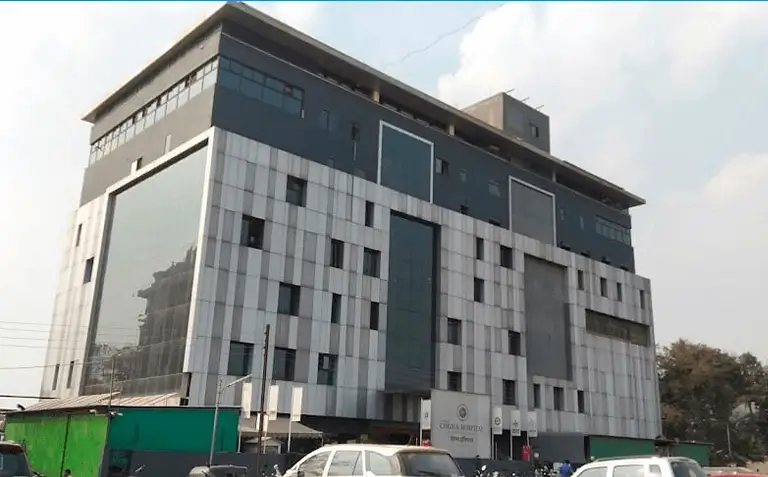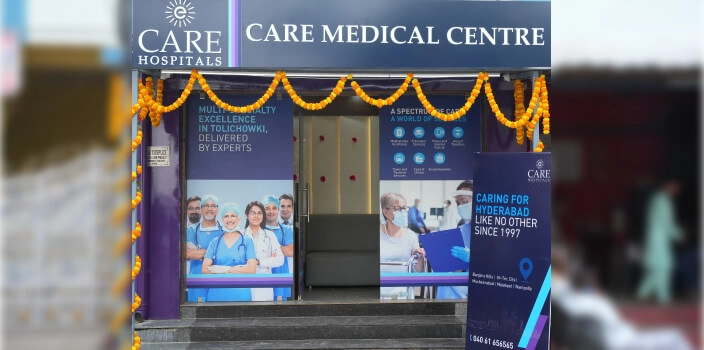-
Doctors
-
Specialities & Treatments
Centre of Excellence
Specialties
Treatments and Procedures
Hospitals & Directions HyderabadCARE Hospitals, Banjara Hills CARE Outpatient Centre, Banjara Hills CARE Hospitals, HITEC City CARE Hospitals, Nampally Gurunanak CARE Hospitals, Musheerabad CARE Hospitals Outpatient Centre, HITEC City CARE Hospitals, Malakpet
HyderabadCARE Hospitals, Banjara Hills CARE Outpatient Centre, Banjara Hills CARE Hospitals, HITEC City CARE Hospitals, Nampally Gurunanak CARE Hospitals, Musheerabad CARE Hospitals Outpatient Centre, HITEC City CARE Hospitals, Malakpet Raipur
Raipur
 Bhubaneswar
Bhubaneswar Visakhapatnam
Visakhapatnam
 Nagpur
Nagpur
 Indore
Indore
 Chh. Sambhajinagar
Chh. SambhajinagarClinics & Medical Centers
Book an AppointmentContact Us
Online Lab Reports
Book an Appointment
Consult Super-Specialist Doctors at CARE Hospitals

Best Hospitals for Acute Appendicitis Surgery in Hyderabad
- Advanced Technology
- Shorter Hospital Stay
- Pre & Post-Operative Care
- All Insurance Accepted

Chat With Our Experts
Get second opinion on Whatsapp
25 lakhs+
Happy Patients
Experienced and
skilled surgeons
17
Health Care Facilities
Top most Referral Centre
for Complex Surgeries
Advanced Acute Appendicitis Surgery
Appendicitis surgery ranks among the most common emergency procedures doctors perform worldwide. People between 10 and 20 years old face the highest risk, which makes quick treatment a vital part of recovery.
Medical science has advanced substantially over the last several years, but appendectomy remains the best treatment for acute appendicitis. Studies exploring antibiotic therapy as an alternative show that all but one of these patients treated with antibiotics needed appendectomy within a year.
Laparoscopic appendectomy brings better outcomes than traditional open surgery. Patients who choose this modern approach experience fewer wound infections, spend less time in the hospital, and enjoy a better quality of life. The best surgical approach depends on your specific condition and overall health.
This article covers everything about appendicitis surgery - from diagnosis and preparation to recovery and aftercare. You will learn what to expect when you or someone you care about needs this common yet significant surgical procedure.
Why CARE Group Hospitals is Your Top Choice for Acute Appendicitis Surgery in Hyderabad
CARE Hospitals excels at appendicitis surgery through our medical expertise and modern facilities. Our surgical team brings together highly experienced doctors who have trained in India and abroad. Each patient receives complete treatment through our integrated team approach. Our general surgeons remain available 24/7 to handle any surgical emergency. Patients benefit from:
- Minimal incision and scarring techniques
- Faster post-operation recovery
- Lower risk of infection
- Expert surgical gastroenterologists
Best Acute Appendicitis Surgery Doctors in India


Innovative Surgical Technology at CARE Hospital
CARE Hospitals welcomes advanced laparoscopic techniques for appendectomy. Our laparoscopic approach gives patients less post-surgical pain, shorter hospital stays & quicker rehabilitation compared to traditional methods. The surgery typically takes 1-2 hours, and most patients head home on the same day or after 1-2 days. Our surgeons use sophisticated equipment that will give a precise diagnosis and effective treatment.
Conditions for Acute Appendicitis Surgery
The appendix becomes inflamed from obstruction, leading to appendicitis. Patients often experience severe pain in the lower right abdomen, fever and signs of infection. Surgery becomes essential when:
- Abdominal pain and fever persist
- The appendix might burst and cause severe health issues
- A fecalith or a lymphoid tissue growth blocks the appendiceal lumen
Types of Acute Appendicitis Procedures
CARE Hospitals provides multiple surgical options to treat appendicitis:
- Open Appendectomy: The traditional method uses a 2-4 inch incision in the lower right abdomen. This approach works best with ruptured appendicitis cases.
- Laparoscopic Appendectomy: This common technique uses 1-3 tiny incisions and camera guidance. Patients experience less pain, smaller scars and recover faster than with open surgery.
- Single-incision Laparoscopic Appendectomy: Select facilities offer this advanced technique that uses one incision to achieve better cosmetic results.
Pre-surgery Preparation
Doctors perform most appendectomies within 24 hours of diagnosis. The essential preparation steps involve:
- Medical staff insert IVs for antibiotic therapy that continues 1-7 days based on infection severity
- Blood tests and imaging scans help assess the nature of appendicitis
- Patients must fast for 8 hours before surgery while receiving IV fluids
- Medical teams review patient history, current medications and allergies
Acute Appendicitis Surgical Procedure
Surgeons perform either of these procedures under general anaesthesia:
- Laparoscopic Appendectomy:
- Surgeons make 1-3 small incisions near the belly button
- The abdomen needs carbon dioxide inflation for better visibility
- Surgical teams remove the appendix through small tubes using camera guidance
- Open Appendectomy:
- A larger incision (2-4 inches) in the lower right abdomen provides access
- Surgeons get direct access to the appendix and the surrounding area
- This approach works best for widespread infection cases
The surgery takes about 1-2 hours.
Post-surgery Recovery
Recovery time depends on the surgical approach:
- Patients can go home the same day after simple laparoscopic surgery
- Open surgery or complicated cases need 1-2 days in the hospital
- Doctors prescribe medication for pain management
- Patients return to normal diet gradually
- Medical teams encourage walking within hours after surgery
Risks and Complications
Surgery carries these potential risks:
- Infection at surgical sites
- Incision sites may bleed
- Adhesions can cause bowel obstruction
- A ruptured appendix might lead to abscess formation
Benefits of Acute Appendicitis Surgery
Benefits are:
- Symptoms disappear right away
- Surgery prevents life-threatening complications like peritonitis
- Laparoscopic approach allows faster recovery than open surgery
- Laparoscopic technique leaves minimal scarring
Insurance Assistance for Acute Appendicitis Surgery
Health insurance plans typically cover appendectomy as medically necessary treatment. Coverage extends to:
- Diagnostic tests
- Surgery costs
- Medicines
- Care before and after hospitalisation
Second Opinion for Acute Appendicitis Surgery
A second opinion before surgery helps patients:
- Verify diagnosis accuracy
- Understand if surgery is needed
- Learn about alternative treatments
- Feel more confident about their treatment plan
Conclusion
Appendicitis surgery is a crucial emergency procedure that helps millions of people each year worldwide. Surgical removal of the appendix remains the best treatment option, even as researchers explore antibiotic alternatives. Modern laparoscopic techniques give patients faster recovery times with less pain and smaller scars than traditional open surgery.
CARE Hospitals delivers excellent care to appendicitis patients with skilled surgical teams and state-of-the-art equipment. The hospital's surgical teams are ready 24/7 to treat this potentially dangerous condition. Patients receive personalised surgical approaches based on their specific needs.
A clear understanding of the entire process from diagnosis to recovery helps patients prepare better for their appendectomy. Recovery is usually quick, and patients can resume their normal activities within days or weeks.
Appendicitis is common, but treating it demands skilled surgical expertise. Quick medical attention can mean the difference between a smooth recovery and serious complications.
Acute Appendicitis Surgery Hospitals in India
-
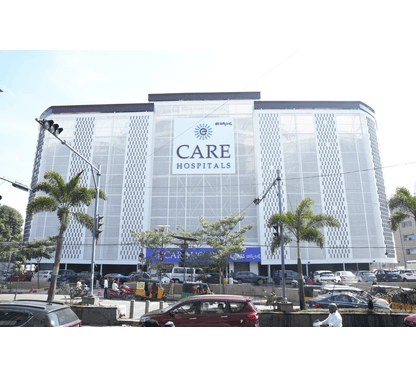
CARE Hospitals, Banjara Hills, Hyderabad
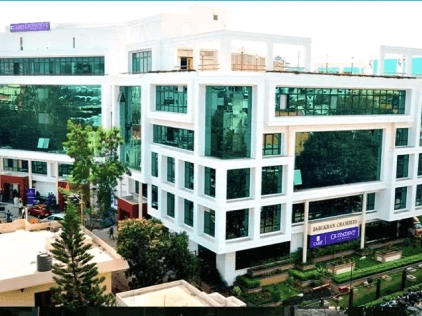
CARE Hospitals Outpatient Centre, Banjara Hills, Hyderabad
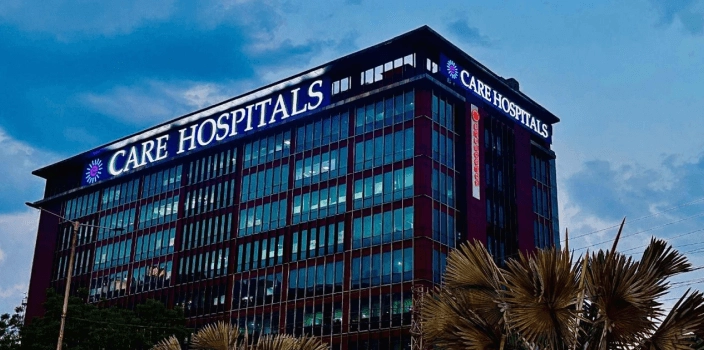
CARE Hospitals, HITEC City, Hyderabad
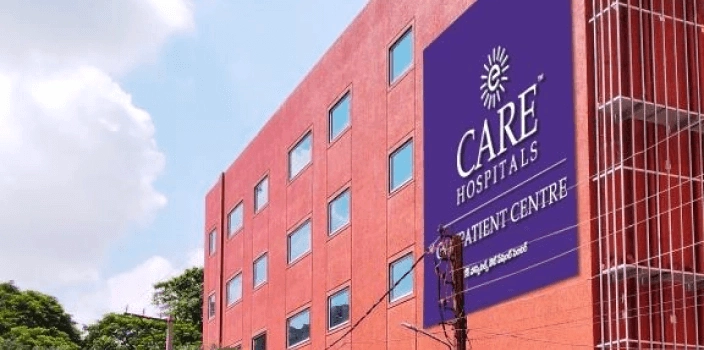
CARE Hospitals Outpatient Centre, HITEC City, Hyderabad
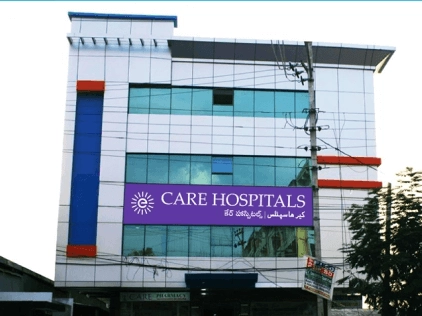
Gurunanak CARE Hospitals, Musheerabad, Hyderabad
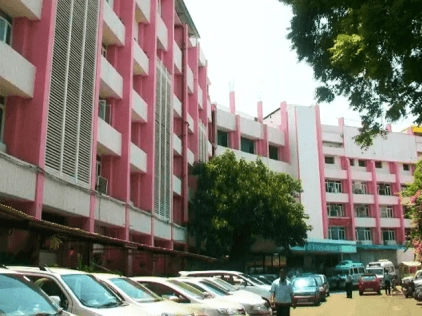
CARE Hospitals, Nampally, Hyderabad
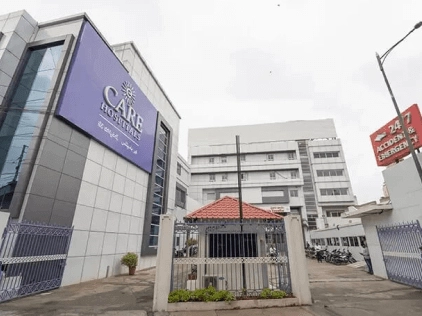
CARE Hospitals, Malakpet, Hyderabad
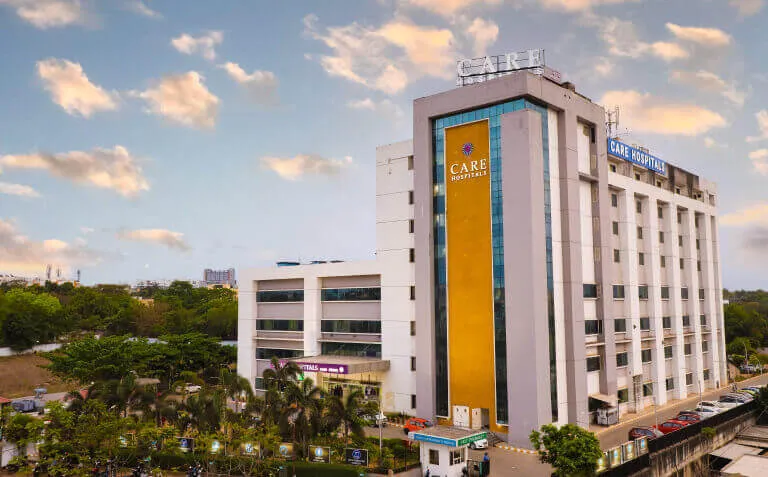
CARE Hospitals, Bhubaneswar
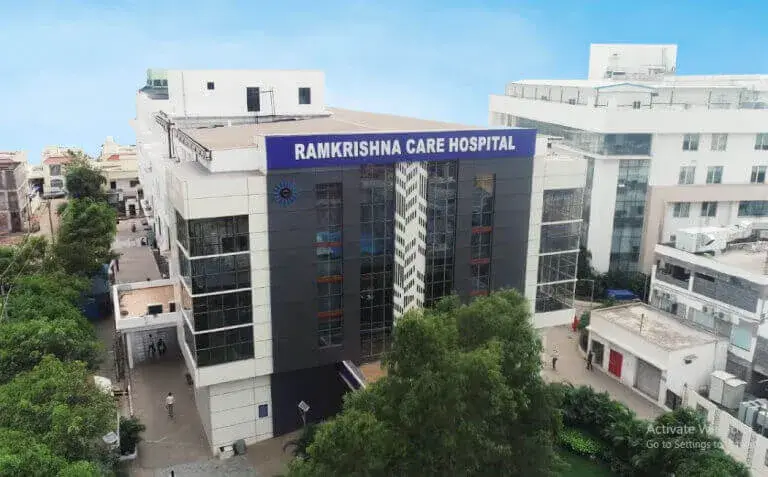
Ramkrishna CARE Hospitals, Raipur
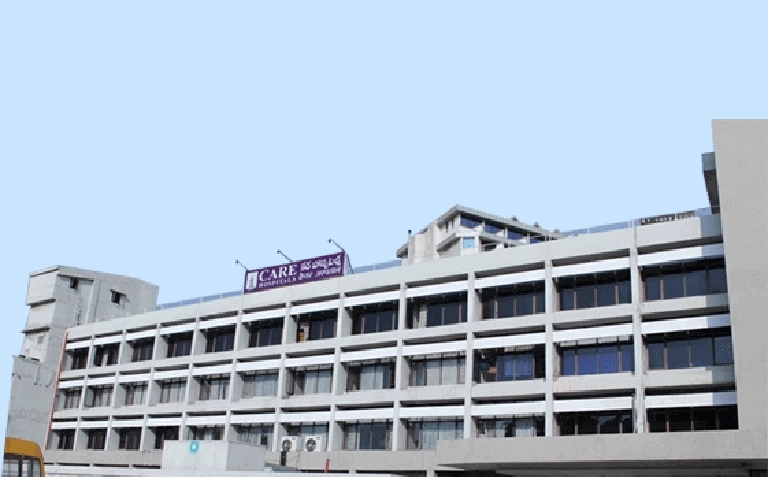
CARE Hospitals, Ramnagar, Visakhapatnam
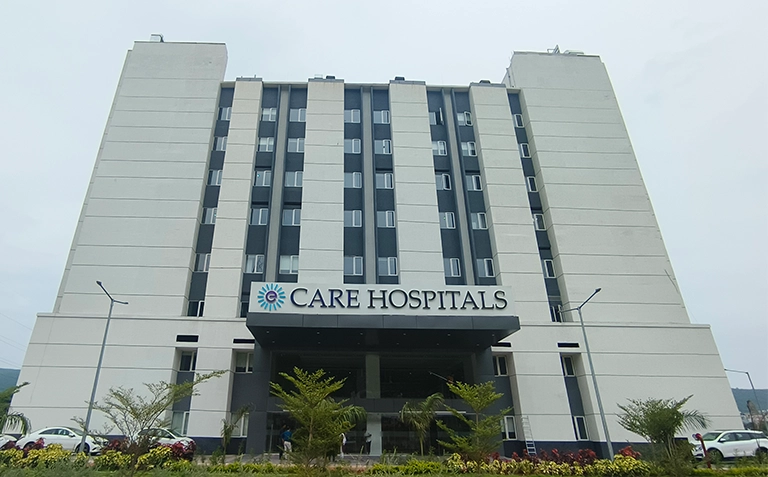
CARE Hospitals, Health City, Arilova
Related Surgeries
- Best Hospital for Thoracotomy Surgery in Hyderabad
- Best Hospital for Hiatus Hernia Surgery in Hyderabad
- Best Hospital for Incisional Hernia Surgery in Hyderabad
- Best Hospital for Pilonidal Sinus Surgery in Hyderabad
- Best Hospitals for Hepatectomy Surgery in Hyderabad
- Best Hospitals for Acute Appendicitis Surgery in Hyderabad
- Best Hospital for Thymectomy Surgery in Hyderabad
- Best Hospital for Epigastric Hernia Surgery in Hyderabad
- Best Hospital for Gastric Band Surgery in Hyderabad
- Best Hospital for Anorectal Surgery in Hyderabad
- Best Hospital for Inguinal Hernia Surgery in Hyderabad
- Best Hospital for Pilonidal Cystectomy Surgery in Hyderabad
- Best Hospital for Splenectomy Surgery in Hyderabad
- Best Hospital for Rectopexy Surgery in Hyderabad
- Best Hospital for Hemorrhoidectomy in Hyderabad
- Best Hospital for Esophagectomy Surgery in Hyderabad
- Best Hospital for Cervical Lymph Node Dissection Surgery in Hyderabad
Frequently Asked Questions
Appendectomy removes an inflamed appendix through surgical intervention. Surgeons can perform this operation in two ways:
- Laparoscopic method
- Open method
Doctors recommend an appendectomy if:
- You experience ongoing abdominal pain, fever, and show signs of infection
- Your appendix might burst, which leads to life-threatening peritonitis
- The appendix shows inflammation or infection (appendicitis)
Appendectomy is generally safe. The procedure offers more safety than untreated appendicitis, which can rupture and cause severe complications.
Simple appendectomy procedures last 30-60 minutes. Complex cases involving a ruptured appendix might take over 90 minutes. The surgical approach and the patient's condition determine the exact duration.
Doctors classify appendectomy as a major abdominal surgery. All the same, doctors perform this routine procedure frequently. Patients typically recover quickly, particularly after laparoscopic surgery.
Patients should know these possible complications:
- Wound infections
- Internal bleeding
- Abscess development
- Bowel obstruction
- Nearby organs could sustain injury
Recovery periods differ by surgical method:
- Laparoscopic surgery patients need 3-7 days
- Open surgery patients require 10-14 days
- Complete recovery takes 2-6 weeks based on the procedure type.
The human body functions normally without an appendix. A small number of patients might experience:
- Incisional hernia where the surgery occurred
- Bowel obstruction from adhesions
- Stump appendicitis if part of the appendix remains
Doctors use general anaesthesia to put you completely asleep during most appendectomy procedures. General anaesthesia remains the standard practice for appendectomy.
Antibiotics alone can treat some mild cases of appendicitis. Research shows antibiotic therapy might work for uncomplicated appendicitis, particularly when:
- Your appendix hasn't ruptured
- Doctors catch the appendicitis early
The success rate isn't perfect, though. About 1 in 4 patients who started with antibiotics needed surgery within a year.
Doctors first determine if the appendicitis is complicated or uncomplicated. The management plan usually has:
- Antibiotics right away, before deciding on treatment
- Surgical removal as the preferred option in most cases
- Drainage procedures for patients with appendix abscess
- A follow-up appendectomy after 4-8 weeks for abscess cases
The appendix's size isn't the only factor that determines if you need surgery. Doctors look at several important aspects:
- Your symptoms, like pain and fever
- The risk of rupture
- Your overall health condition
Yes! Doctors actually want you to walk soon after your appendectomy. Here's what you can expect:
- After laparoscopic surgery, you'll likely get out of bed within hours
- Open surgery patients usually start walking the next day
- Moving helps prevent blood clots and gets your bowels working normally
The recovery period varies. Doctors suggest avoiding heavy physical activity for 3-5 days after laparoscopic surgery and 10-14 days after open surgery.
Still Have a Question?





